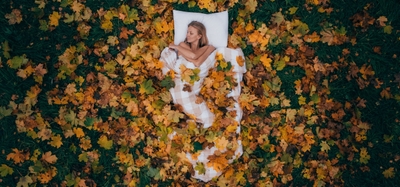Sleep well, wake up great - it's science!

What is the circadian rhythm?

What is the circadian rhythm?

What is Lucid Dreaming and How to do It?

What is Lucid Dreaming and How to do It?

Your Kid’s Sleep Habits Highly Affect Academic Performance

Your Kid’s Sleep Habits Highly Affect Academic Performance

When Do Newborns Sleep Longer At Night?

When Do Newborns Sleep Longer At Night?
Sleep solutions you can trust

7 signs it’s time for a new mattress

7 signs it’s time for a new mattress

The Ultimate Guide for Buying the Right Pillow

The Ultimate Guide for Buying the Right Pillow

Everything You Need To Know Before Buying A Mattress

Everything You Need To Know Before Buying A Mattress

How to Protect Your Mattress and Increase its Lifespan?

How to Protect Your Mattress and Increase its Lifespan?
Featured Products
Emma Luxe Cooling Mattress
Full support that keeps you cool Designed to regulate your body temperature with ThermoSync® Technology and help you fall asleep faster
Emma Premium Mattress
Comfort and support come together in one of the best mattresses in the UK. Our award-winning mattress.
Emma Original Pillow
Our memory foam pillow with adjustable layers for the perfect height.
Emma 4-Season Duvet
A sustainable duvet fit for all seasons, that is easily customisable & washable
Sunrise by Emma is different. Here's why you'll love it.
Fact-checked by (real) experts
You need sleep knowledge you can trust, not lines from actors in lab coats. All our content is reviewed and approved by our internal Sleep Research team as well as our esteemed external experts who from the Scientific Advisory Board.
Fair and Open
We want to provide you with transparent and credible sleep advice, not a great big ad for Emma sleep products. With research and reviews on a range of products and brands, the (informed) choice is yours.
Tough testing and research
We're biased about how brilliant Emma´s sleep products are, but we test competitors with the same methods, and we'll tell you if they beat us for certain criteria.














.jpg?width=480)

